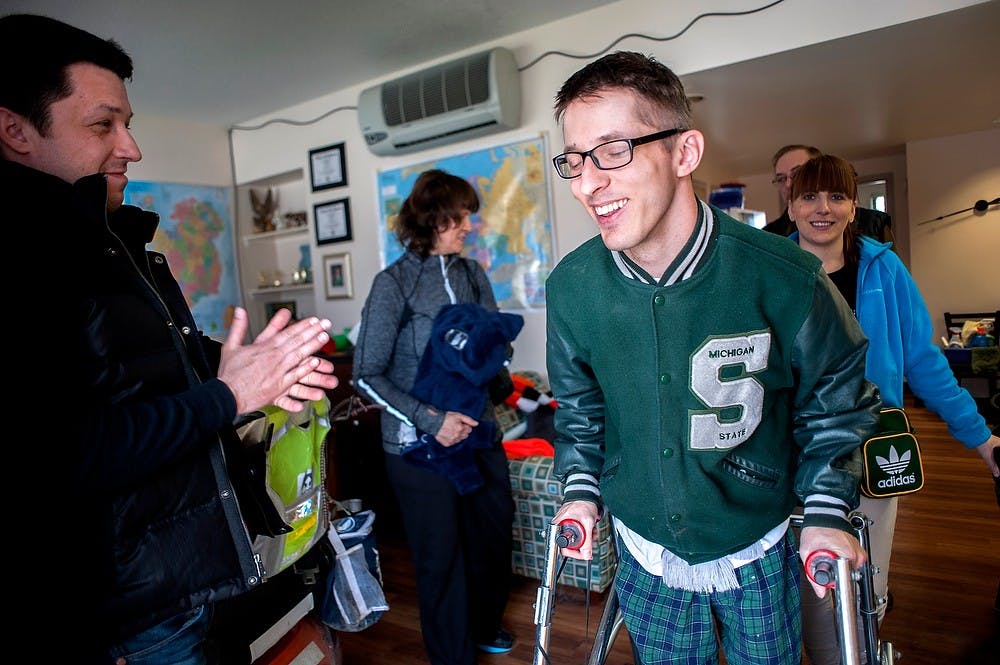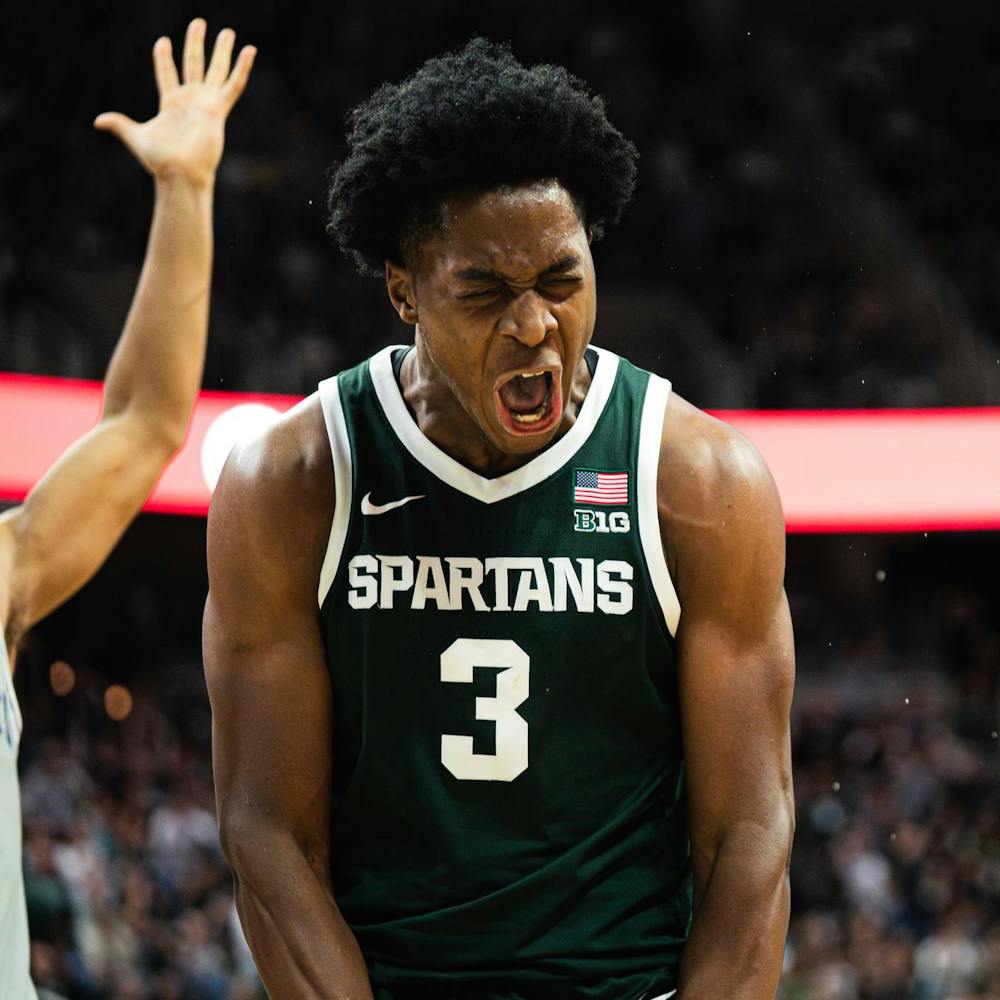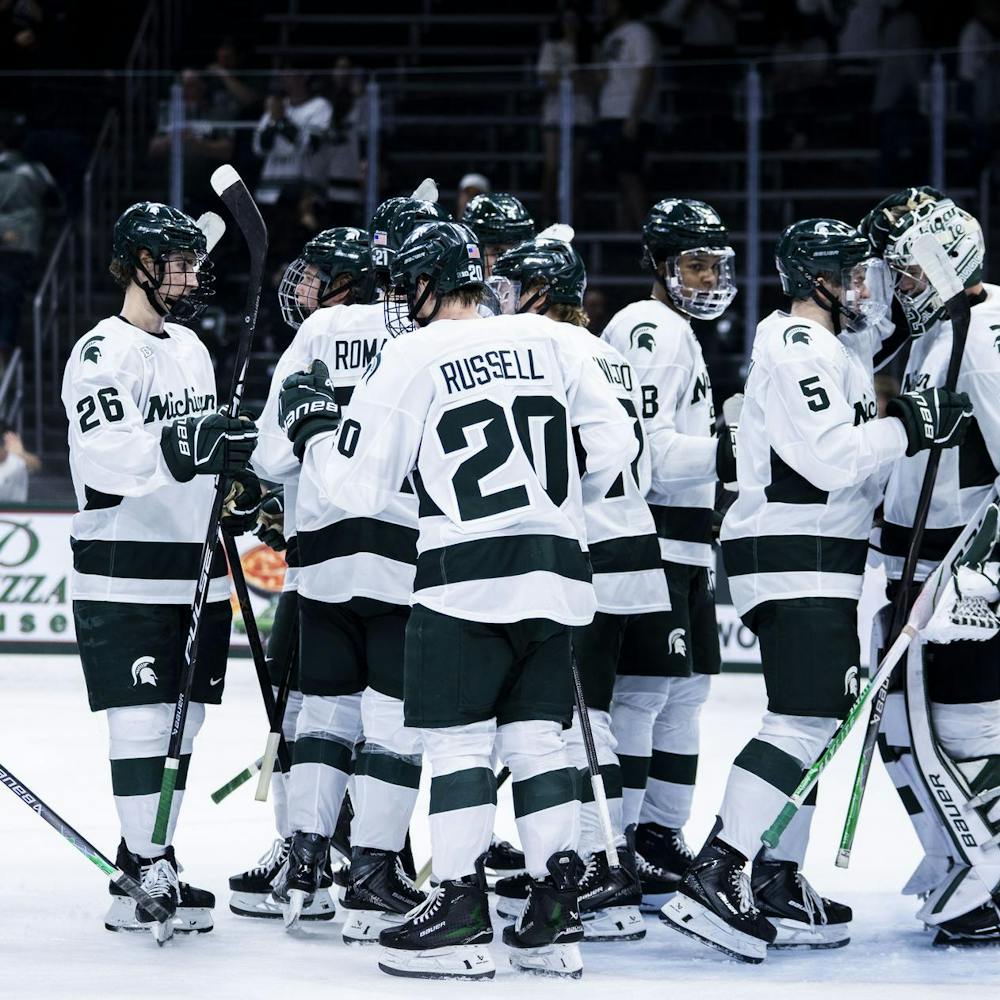“People will come up to me and ask, ‘Do you know where you are?’ … And people get nervous when I go down stars, which I guess I understand,” the computer science sophomore said, laughing.
Born 15 weeks premature, oxygen built up in the back of Castor’s eyes, causing her to lose the ability to see — a disability that didn’t stop her from becoming a Spartan.
“A lot of people will see me walking around campus and they’re intimidated because they think, ‘Oh, there’s a blind person over there, what am I going to do?’” she said. “I’m a normal person — I have dreams and goals. We’re normal people. We’re overcoming challenges to do what we want to do.”
For Castor, college wasn’t something she had to think twice about. But for many people with disabilities, the decision isn’t that easy.
Getting there
In 2012, more than 1,270 students registered and identified themselves as having a disability — about 2.6 percent of MSU’s population, said Mike Hudson, director of MSU’s Resource Center for Persons with Disabilities, or RCPD.
The choice to pursue higher education requires weighing possibilities against limitations, but Hudson said it’s up the student whether to set the bar high.
“How hard one struggles and persists is a part of their choice,” he said. “They’ll get to decide — that’s the beauty of it.”
For some students, the worry arises from the impact a disability can have on their academic performance.
According to a survey conducted by Student Health Services, of the students that reported a disability, there is about a 61 percent chance attention deficit disorder would have an impact on a student’s academic success, about a 48 percent chance for a learning disability and about a 36 percent chance for a chronic illness.
For others, a disability can limit social interactions and further challenge students transitioning from high school to college life.
Media and information junior Elliot Zirulnik, was diagnosed in middle school with Asperger’s syndrome, a form of autism.
“I knew that something wasn’t right with my ability to communicate and make friends,” he said, adding his difficulties include knowing what to say during an informal conversation and maintaining eye contact.
Zirulnik said he entertained the idea of going to community college, but decided to step out of his comfort zone and has never looked back.
Now in his third year at MSU, he’s the vice president of the Council of Students with Disabilities and a member of the Building Opportunities for Networking and Discovery program.
“I wouldn’t have accomplished half the things I’ve accomplished if I had just stayed where I felt safe,” he said.
Getting the help
To help students pursing higher education, the RCPD works with students who have learning disabilities and attention deficit, autism spectrum disorders, brain injury, mobility disabilities, psychiatric disabilities, blindness and visual impairment, deaf or hard of hearing, chronic health disabilities and other disabilities.
Support student media!
Please consider donating to The State News and help fund the future of journalism.
The center provides services and accommodations tailored to the students’ needs, which students can give to their professors. This can range from allowing the students more time on exams to having someone read the exam to the student.
Hudson said the goal of the RCPD is to support students during their time at MSU to ensure they graduate with the skill set to successfully adapt to the workplace.
“If you earn our admission to MSU, we’re certainly confident that disability will not stop you from being successful,” he said.
It’s not just faculty looking out for students with disabilities.
Disability Advocacy Rehabilitation Network President Jessica Diener said her group advocates for people-first language regarding disabilities — identifying someone as a person with disabilities rather than a disabled person.
She is one of many students in the rehabilitation counseling master’s program who work with people with disabilities through transitional periods, such as between high school and college or from school into a job.
Castor finds help with MSU Tower Guard, a service-based group that works with students who are blind by reading assignments aloud and scanning classroom textbooks to send them to a company that prints them in Braille.
“We appreciate being able to work with them,” said Joey Etienne, the group’s president. “We learn just as much from them.”
Making the change
Since he arrived on campus 30 years ago, Dennis Martell, director of health promotion at Student Health Services, said he has seen the university come a long way in providing resources for students with disabilities.
“There’s been a long history of activism on this campus to remove barriers, and the university has responded,” he said, recalling the time Spartan Stadium added seating for people who are handicapped after he helped file a grievance in the 1980s.
Still, it remains unclear if it is a national priority.
President Barack Obama’s 2014 budget proposal released last week increases funding for K-12 education, but not for programs falling under the Individuals with Disabilities Education Act.
Hudson said as technology moves toward electronic resources, textbooks accessibility for people with disabilities remains a challenge. He said more investments in transportation also can give students with disabilities more opportunities.
Although Hudson said there is always room for improvement, the campus’ services have helped students reach goals and achievements, including a total of $66,000 in scholarships.
“Some of the stories you hear at that (ceremony) remind you why you’re doing what you do,” he said. “The hopes that people come in with — the dreams and goals — just to see them become solidified as they’re increasingly successful in academic pathways is pretty powerful.”
Castor said going to college has changed her life and by telling her story, she hopes to inspire other people with disabilities to pursue education and take advantage of university resources.
“It’s important to let people know that it’s okay to ask for help,” she said. “It’s not a shameful thing to have a disability.”
To learn more about Castor and her story, see Wednesday’s paper.
Discussion
Share and discuss “Overcoming Obstacles” on social media.





